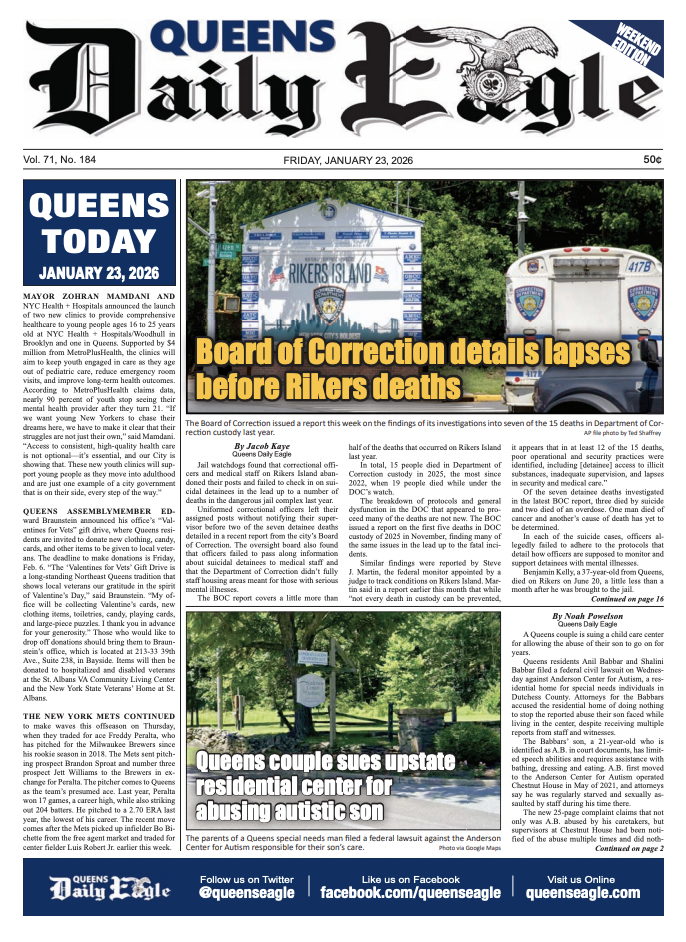New York court leaders move to address systemic racism after landmark report
/Deputy Chief Administrative Judge for Justice Initiatives Edwina Mendelson discussed her own experience with racial profiling and discrimination. Eagle file photo by Rob Abruzzese
By Rachel Vick
New York court leaders discussed steps to combat racial bias in the courts during a community forum Thursday, three months after a landmark report detailed systemic racism throughout the state’s legal justice system.
The event, titled a “Virtual Town Hall Meeting on Dismantling Systemic Racism in the Courts,” comes three months after a task force chaired by former Homeland Security Secretary Jeh Johnson detailed pervasive racism throughout the court system. Johnson’s task force, commissioned by Chief Judge Janet DiFiore, also proposed recommendations for combatting prejudice, including mandatory bias training and improving the system for filing complaints.
Chief Administrative Judge Lawrence Marks said the report provides a blueprint for addressing racism in the courts.
“There is no more important task in the unified court system right now than following up on the recommendations in the Johnson report and seeing to their speedy and effective implementation,” Marks said. “The report is thorough, it is comprehensive, it pulls no punches and lays out a series of steps we can take as an institution.”
Justice Edwina Mendelson, the state’s Deputy Chief Administrative Judge for Justice Initiatives, was among several participants who shared their own experiences with racism in the courts.
She recalled instances where she was profiled and excluded, such as a time she was asked to wait outside the courtroom until her case was called while other attorneys were allowed to move freely.
“The report on equal justice tells us that these experiences continue to happen,” Mendelson said. “I look forward to this challenge, and oh it is a challenge.”
Other participants shared similar experiences with profiling and discrimination.
DiFiore said the town hall event was intended to give voice to individuals throughout the legal system, from judges to court officers.
A nationwide movement against racism touched off by the police killing of George Floyd in May 2020 also reached New York’s courts, spurring honest examinations of pervasive bias in the legal system. Johnson’s report highlighted racial disparities in court system hierarchy and judiciary, as well as explicit racism against attorneys, court officers, defendants, respondents and visitors of color.
Johnson’s task force solicited input from stakeholders throughout the summer, with organizations and individuals rising to the challenge.
The Judicial Friends Association, a group representing judges of color, submitted a 161-page report outlining examples of systemic racism in staff and judicial appointments, as well as in the treatment of Black and Latino court visitors, attorneys and litigants.
The task force interviewed hundreds of people while compiling their report.
“In my assessment as a lawyer, a student of history, a former public official, and as an African American, this is a moment that demands a strong and pronounced rededication to equal justice under law by the New York State court system,” Johnson said following publication of the analysis.
Additional reporting by David Brand




